Planets, The (UK)
Click to read:
Take a journey to worlds beyond your imagination
Certificate: none
Running Time: 390 mins
Retail Price: £34.99
Release Date:
Content Type: TV Series
Synopsis:
Employing state-of-the-art computer graphics, unseen space race archive and testimony from leading scientists, The Planets is the most comprehensive and spectacular account of space exploration and discovery ever made. This double DVD contains all eight 50-minute episodes.
Different Worlds
This first part of The Planets looks at the early attempts at space travel, from the rocket pioneers of the inter-war years to the launch of Mechta in 1959 - which flew wide of the moon by 6000km and is now consigned to an endless journey around the sun. We also see how the very latest space explorations reveal just how different the planets are from each other. How were they created? Knowing this brings us to a more accurate model of how the Solar System itself came to be.
Terra Firma
This is the story of the pioneering missions to our neighbouring worlds and of our first glimpses of their awe-inspiring terrains. From the giant lava plains of Venus, to the volcanoes on Mars that would dwarf Mount Everest, Terra Firma takes us on a grand geological tour of the most amazing vistas in our planetary neighbourhood. It recounts the gripping stories behind these most inspiring scientific adventures and discovers that - against all odds - the Solar System is very much alive.
Giants
For centuries, scientists have been trying to uncover more about the massive planets which lurk in the far flung reaches of the solar System. Giants retraces these endeavours, from Galileo`s sighting of Jupiter`s moons in 1610 to the most successful probes in the hstory of space exploration - Voyager 1 and Voyager 2. And at the cutting edge of current research, it takes us with the Voyager spacecraft on the journey of a lifetime, to the secret hearts of Jupiter, Saturn, Uranus and Neptune - the mysterious giants of our solar System.
Moon
Nothing could be more familiar to human eyes than the Moon. And yet nothing could be stranger. None of our near neighbours in the Solar system - Mercury, Venus or Mars - has a moon like ours, a companion in space so large that it rules our nights, our months, our ocean tides. Why Earth should have such a moon is one of the deepest mysteries of the Solar System. Moon delivers the latest explanations and also takes a fascinating look at the space race years - when the Cold War powers battled to achieve the first lunar landing.
Star
From the very beginning, mankind has looked up to Earth`s star - the Sun - and worshipped it as a god. Science has shown it to be otherwise, but it has also shown that the Sun is more powerful than anything our sun-worshipping ancestors could have imagined - it alone accounts for 99.8% of all matter in the Solar System. Star shows us how the Space Age has given us a new perspective on the Sun and joins the Voyager spacecraft on a mission in search of its outer edge.
Atmosphere
The Solar System presents a dazzling array of alien weather: Venus (the crushing inferno where oceans have boiled off into the sky), Mars (a frigid desert whose oceans are frozen deep within its crust) and Jupiter (a world of storms that plunge for thousands of kilometres yet never whip solid ground). Atmosphere takes us on a fantastic voyage through the skies of the solar System, discovering the atmospheres of our fellow planets. It also introduces us to the engineers behind the incredible space probes which are delivering these images to us.
Life
Ever since mankind realised that the Earth was not the centre of the Universe, we have asked ourselves the question: are we alone? Could the seed of life have taken root on other planets? Our first searches revealed a desolate Solar System. But perhaps we have been looking in the wrong places.
Destiny
Our star, the Sun, created our Solar System and in an act of cosmic cannibalism will engulf and destroy it. But the planets will see many changes before the light of our star goes out. Destiny explores the evolution of the planets over the next four billion years, as Mars and Titan warm up, Mercury and Venus go into meltdown, and the gas around the Giants slowly blows away.
Special Features:
Interactive Menus
Scene Access
Video Tracks:
Widescreen Anamorphic 1.78:1
Audio Tracks:
Dolby Digital Surround 2.0 English
Subtitle Tracks:
Swedish
Finnish
CC: English
Portuguese
Dutch
Danish
Norwegian
Distributor:
BBC
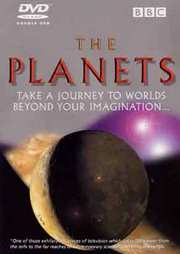
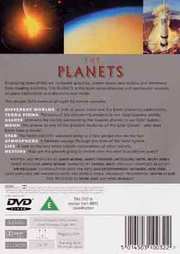
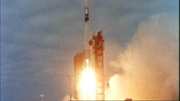
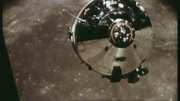
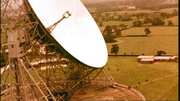
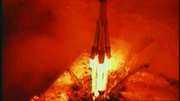

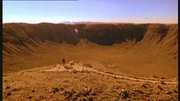
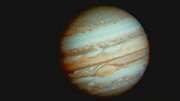
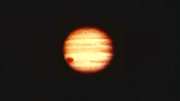
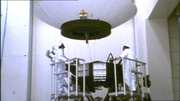

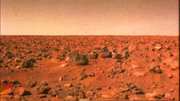

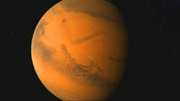
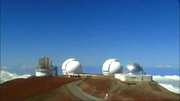
Your Opinions and Comments
It is breathtaking, mostly scientific, very accurate when it comes to the history of astronomy, and as a whole - fascinating.
The 2 disk set contains the entire 8 episodes of the series (each running for 50 minutes).
The video transfer is excellent. There are no compression signs and the level of detail is extremely high. The CG models look superb and are probably the closest one can get to actually visiting our neighbouring planets. Some of the archive footage is obviously old and worn out, but that does not get in the way at all.
The DD 2.0 surround soundtrack is very good. It utilizes the surrounds very nicely, mainly for some special effects. Holst`s music is divine. Period.
The menus are animated yet are silent.
The disks do not contain any extras at all.
Bottom line - a real treasure for any astronomy (or CG animation) fan. Buy it now. Maybe in 50 years you`d watch it and smile at just how naive we`ve been back at the turn of the Millennium.